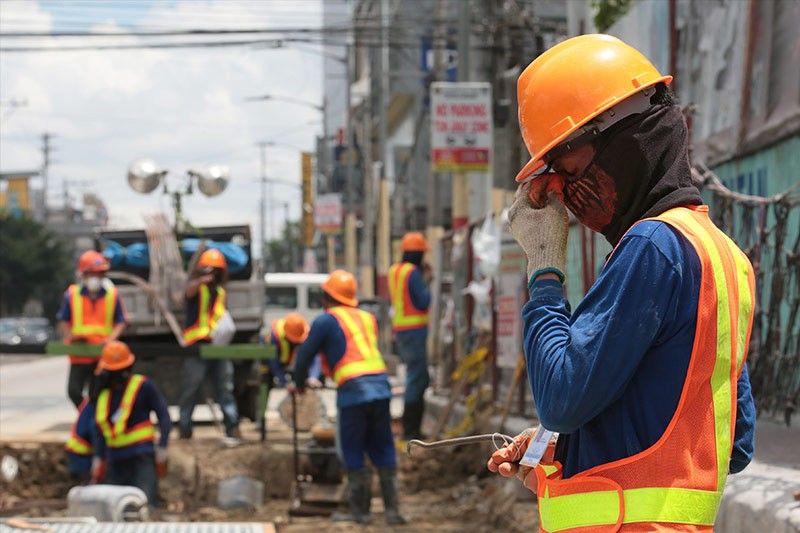Remove the roadblocks on right of way acquisition

In recent years, the government has committed to make game-changing reforms in order to make the Philippines more attractive as an investment destination.
Attracting investments is essential to the advancement of inclusive economic growth, and making life better for more Filipinos, through the creation of more jobs, the provision of better services, and the availability of economic opportunities for all.
Policies from both the legislative and executive branches have been established to bring us closer to this end. These ensure that the pronouncements are not mere rhetoric, but they are actual aspirations toward which there are concrete action plans.
Recent pieces of legislation that seek to liberalize the economy are the Public Service Act. the Foreign Investments Act and the Retail Trade Liberalization Act. These complement the earlier Corporate Recovery and Tax Incentives for Enterprises (CREATE) Act.
On top of this, the Public-Private Partnership Code of the Philippines, which became a law just this December 2023, aims to establish a transparent, rules-based, and efficient PPP framework to enhance the procurement and delivery of infrastructure projects.
From the executive side, the Palace issued Executive Order 18 in February 2023. This EO mandates the creation of green lanes to expedite and streamline the process of issuing licenses and permits for strategic investments, defined as those that are aligned with the Philippine Development Plan (PDP).
Strategic investments are expected to make a significant contribution to the economy by bringing in substantial capital or investments, improving the country's balance of payments, and enhancing its infrastructure capabilities.
These investments are categorized as follows: (1) highly desirable projects; (2) foreign direct investments (FDIs); and (3) projects or activities under the Strategic Investment Priority Plan (SIPP). When this was launched in July 2023, President Ferdinand Marcos Jr. expressed his optimism about the Philippines becoming an attractive and competitive hub for business ventures.
As mandated by the EO, the Board of Investments established its One-Stop Action Center for Strategic Investments (OSAC-SI), granting green lane endorsements for PHP 1.196 trillion worth of projects. Since the EO’s release, the OSAC-SI has endorsed a total of 36 projects, most of which are in renewable energy and digital infrastructure.
**
However, such initiatives toward making the country an attractive site for investments in infrastructure will only achieve their intended purpose if they are not hampered by practical concerns on the ground. Specifically, right of way issues often derail the objectives of infrastructure projects.
At a recent dialogue hosted by the Makati Business Club (MBC) highlighted that provisions in the law should ensure not only compensation and proper relocation for the safety and well-being of informal settler families (ISFs).
Those affected by ROW must receive fair and just compensation for their properties and displacement. Thus, there is a need for realistic estimates of ROW costs, including fair market prices to be paid for the lands, crops and trees, and current replacement costs to be paid for the affected houses and structure, including resettlement plans.
In the forum, stakeholders also highlighted that ROW acquisition requires collaborative efforts among various agencies to streamline processes as the lack of coordination and initiative exacerbates ROW issues. ROW acquisition challenges not only prolong project timelines but also increase overall project costs.
The active involvement of implementing agencies such as the Department of Transportation (DOTr) and Department of Public Works and Highways (DPWH), including the local government units (LGUs), will be able to further facilitate and provide the necessary support for the relocation process of affected parties.
Constructive alignments of these agencies is needed to remove the hindrances to the construction of public works projects such as highways, expressways, railways, ports, and other mass transportation systems.
Addressing ROW issues is required to ease the business environment and enable more private sectors to invest in the country. Simplifying and expediting the ROW acquisition process can boost investor confidence by reducing uncertainties and project delays. This will also send the positive message that the government is serious about its drive to attract investments and to build infrastructure for the long-term benefit of its people.
This policy approach reflects the government's commitment to creating a more investor-friendly environment, emphasizing efficiency and ease of doing business to attract both local and foreign investment. By promoting productivity through technological advancements and infrastructure development, investments become instrumental in driving sustained economic progress, ensuring a more prosperous and inclusive society.
The government must ensure that roadblocks which might hamper infrastructure projects are cleared. Particularly, there must be clear provisions in the law that would minimize the effects of delays, additional costs, and other debilitating effects that would frustrate the objectives of infrastructure building and investment generation.
We are reminded that it is the practical things that define or break an initiative. It is good that the government appears to be listening on the issue of right of way. It is a legitimate concern that must be prioritized to avoid project delays that result in bloated costs, and even cumbersome litigation that can stop a project for years.
It is a concern for the communities and households affected by the right of way issues because they deserve to be compensated justly and fairly for the disruption that would be caused by the project.
Most importantly, it is a concern for the general public, who are intended to be served by the projects in the first place. It is the people who will ultimately bear the consequences of not having adequate infrastructure and miss out on the economic opportunities that they bring.
Rupert Paul Manhit is the COO and managing director of think tank Stratbase Group. He is the executive director of Philippine Trade Foundation (Phils Inc.)
- Latest



























